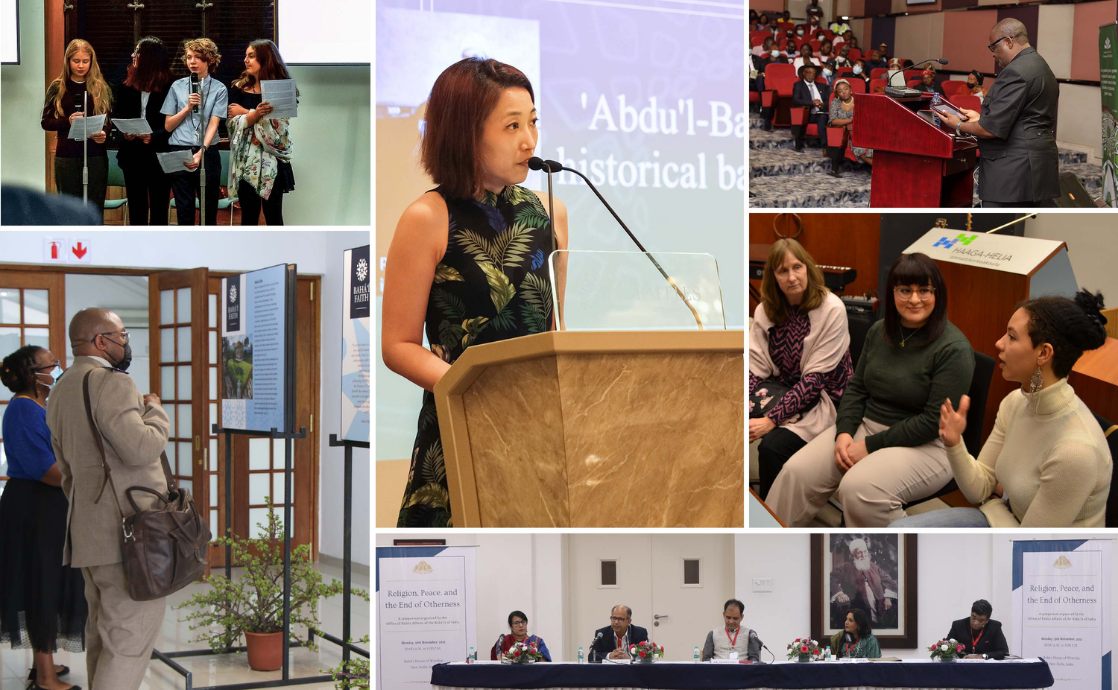In the annals of spiritual history, the passing of an influential figure often marks a pivotal moment that transcends time and culture. The centenary of ‘Abdu’l-Bahá’s passing serves as a poignant reminder of the enduring legacy of a man who emerged as a beacon of hope and a herald of peace. His life and teachings are not simply relics of history but rather a living testament to the potential for humanity’s collective advancement. As nations across the globe take pause to reflect upon this significant milestone, the teachings of ‘Abdu’l-Bahá resonate with renewed urgency, inviting introspection and action.
‘Abdu’l-Bahá, the son of Bahá’u’lláh, the founder of the Bahá’í Faith, is often perceived as the embodiment of compassion and wisdom. His role as an architect of peace is articulated through his fervent advocacy for unity, justice, and equality. He traversed continents, engaging with diverse cultures and disseminating the core tenets of the Bahá’í Faith, laying the groundwork for a more harmonious world. In commemorating his legacy, it is essential to delve deeper into the metaphysical underpinnings of his teachings and their relevance in contemporary society.
At the heart of ‘Abdu’l-Bahá’s teachings lies the profound concept of unity. He articulated that humanity is akin to a vast garden, where each individual represents a unique flower contributing to a magnificent tapestry of diversity. This metaphor encapsulates the essence of his message: while we may differ in race, creed, or nationality, it is our shared humanity that binds us together. In a world persistently marred by divisiveness and strife, the call for unity remains more salient than ever.
The observations of ‘Abdu’l-Bahá during his travels exemplify the practical application of this teaching. He frequently emphasized that genuine, meaningful cooperation transcends superficial interactions; it mandates a deeper understanding and respect for cultural differences. His encounters with leaders, scholars, and everyday citizens alike fostered a dialogue that celebrated both individuality and the fundamental oneness of mankind. Such dialogic engagements are crucial in addressing the contemporary challenges of polarization and conflict. In recognizing our interconnectedness, we can begin to dismantle the barriers that perpetuate misunderstandings.
Furthermore, ‘Abdu’l-Bahá’s advocacy for justice serves as an unwavering pillar in his teachings. He staunchly condemned oppression and inequity, promoting the idea that true justice is the bedrock of societal progress. The metaphor of a scale, tilting towards balance yet often overwhelmed by the weight of prejudice, resonates strongly within this context. Justice, according to ‘Abdu’l-Bahá, is not merely an abstract principle but a vital, dynamic force capable of transforming communities and fostering an environment conducive to human flourishing.
As nations reflect upon the centenary of his passing, the urgency of `Abdu’l-Bahá’s vision becomes increasingly apparent. In light of contemporary injustices—whether social, economic, or environmental—the teachings of fairness and equity challenge us to engage in the relentless pursuit of social change. The metaphorical call to action underscores the imperative for individuals and communities to ignite a flame of advocacy, forging pathways toward systemic reform and social betterment.
The realm of education also features prominently in ‘Abdu’l-Bahá’s vision for a unified world. He posited education as a transformative force, essential for unlocking the latent potential within each individual. The metaphor of a key—capable of unlocking doors to opportunity and enlightenment—aptly illustrates the significance of fostering intellectual growth. Education expands horizons, nurtures critical thinking, and fosters empathy, all of which are integral to the cultivation of global citizens who are prepared to confront the complexities of modern society.
Moreover, ‘Abdu’l-Bahá profoundly recognized the pivotal role that women play in societal advancement. His teachings advocate for gender equality, positing that the empowerment of women is not merely a moral imperative but a prerequisite for global prosperity. The analogy of the sun and moon serves as a powerful symbol of this dynamic; while the sun radiates light, it is the moon that reflects this luminosity, teaching us that both genders are essential for a balanced and thriving society. By fostering the elevation of women, communities can harness the full spectrum of humanity’s capabilities, propelling collective advancement forward.
The commemoration of ‘Abdu’l-Bahá’s passing not only serves as an opportunity for reflection but also as a catalyst for renewed commitment to his ideals. In a world rife with challenges, his teachings beckon us to adopt a paradigm shift rooted in compassion and understanding. Each conversation we foster, every effort we make towards justice, and all educational endeavors we pursue contribute to the legacy of peace that ‘Abdu’l-Bahá championed.
As we navigate the complexities of the modern age, it becomes increasingly vital to internalize and disseminate the teachings of ‘Abdu’l-Bahá. In doing so, we honor not only his memory but also the call to action that reverberates through his life’s work. The journey towards unity, justice, and equality is arduous; however, through collective endeavor and unwavering commitment, the vision of a harmonious world can be realized. In this, we find not just remembrance, but a vivid, living expression of hope—the hallmark of ‘Abdu’l-Bahá’s enduring legacy.
